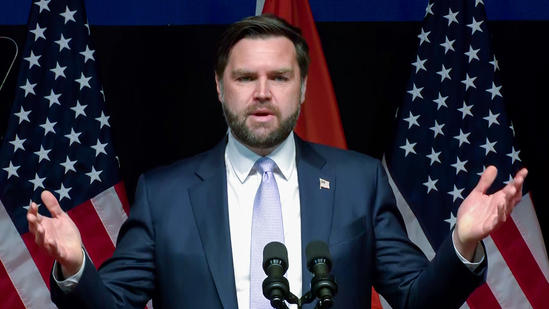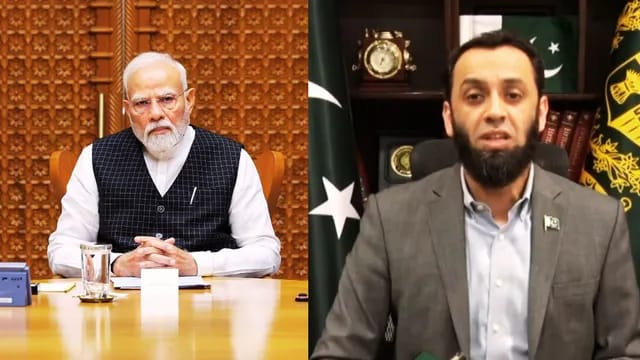
In today’s best news, the scenic Pahalgam valley of Jammu and Kashmir, usually known for its serene beauty, was rocked by a horrific terror attack recently, which has once again escalated tensions between India and Pakistan. The attack on security personnel has been strongly condemned by world leaders including UN Secretary-General Antonio Guterres.
Amid the escalating hostilities, Pakistan has reportedly called for a meeting of the United Nations Security Council (UNSC), triggering a fresh wave of diplomatic exchanges. The UN chief has stressed that “a military solution is not a solution”, urging both countries to exercise restraint.
This article discusses the Pahalgam terror attack, the next UN Security Council meeting, the global response and the future of India-Pakistan relations in detail today.
All the points in this post
Pahalgam terror attack details
The attack took place in Pahalgam, a popular tourist destination in Jammu and Kashmir, known for its lush green pastures and pilgrimage sites. Reports indicate that militants ambushed security forces, resulting in casualties among Indian soldiers. While no group has officially claimed responsibility yet, Indian authorities suspect that Pakistan-based terror outfits are behind the attack.
The attack has not only heightened security concerns in the region, but has also reignited long-standing hostilities between India and Pakistan over Kashmir.
India’s response to the attack
The Indian government quickly condemned the attack, vowing a strong retaliation to Pakistan. Prime Minister Narendra Modi and Home Minister Amit Shah have reiterated India’s commitment to fighting terrorism and assured citizens of heightened security measures.
Diplomatically, India has been gathering international support to isolate Pakistan on global platforms. The Ministry of External Affairs (MEA) has issued a statement blaming Pakistan for harbouring terror groups, which Islamabad has denied.
Public sentiment in India is still strong, with calls for decisive action growing stronger. Social media is abuzz with debate over whether India should adopt a more aggressive stance or apply diplomatic pressure.
Pakistan’s position and UN Security Council meeting
Surprising many, Pakistan has requested an emergency meeting of the UN Security Council to discuss the situation in Kashmir following the Pahalgam attack. Pakistani envoys have accused India of human rights violations in the region, a claim that India has consistently denied.
However, the UN Security Council meeting did not produce the results Pakistan had hoped for. Instead of supporting Pakistan’s demands, several member states called for restraint and dialogue. The meeting highlighted the complexities of the Kashmir issue, with no clear consensus emerging.

Statement by UN chief Antonio Guterres
UN Secretary-General Antonio Guterres has strongly condemned the Pahalgam attack, calling terrorism an unacceptable threat to world peace. He stressed that military escalation would only worsen the situation, but advocated dialogue instead.
Guterres also offered UN assistance to facilitate talks between India and Pakistan – a move India has historically been wary of, given its preference for bilateral talks.
UN Security Council calls for restraint
The UN Security Council, while acknowledging the severity of the attack, refrained from taking sides. Instead, it issued a statement urging both countries to avoid actions that could further escalate tensions. Key members, including the US and France, are reported to have stressed the need for Pakistan to take firm action against terrorist groups operating from its soil.
This balanced approach is seen as reflecting the international community’s reluctance to get involved in the India-Pakistan conflict, recognizing the need for stability in South Asia.
Global Reactions and Diplomatic Consequences
World powers have responded to the Pahalgam attack in a variety of ways, with the US calling for restraint and supporting India’s right to self-defence. The UK has called for dialogue between the two countries. China has maintained a neutral stance in favour of a peaceful solution. Russia has condemned terrorism but avoided direct criticism of Pakistan. The varied responses highlight the geopolitical complexities surrounding Kashmir, with countries carefully weighing their strategic interests.
Historical Background to India-Pakistan Tensions
The Kashmir conflict dates back to 1947, when both countries gained independence. Since then, the region has been a flashpoint for war and conflict. Terrorist attacks such as Uri (2016) and Pulwama (2019) have repeatedly brought the two nuclear-armed neighbours to the brink of conflict. Despite occasional peace initiatives, deep-seated mistrust and cross-border terrorism have stood in the way of a lasting solution.
The Way Forward: Can Diplomacy Sustain?
The immediate challenge is to de-escalate tensions. While India has demanded action against the terrorist infrastructure in Pakistan, Islamabad has insisted on addressing the political situation in Kashmir—a decades-long stalemate.
International mediation, while well-intentioned, has had limited success. India prefers direct talks, but only if Pakistan demonstrates sincerity in combating terrorism. The role of the UN remains controversial, with India wary of external interference in what it considers a bilateral matter.
The End
The Pahalgam terror attack has once again exposed the fragility of India-Pakistan relations. While world leaders have called for restraint, the path to peace is fraught with challenges. While military postures may dominate the headlines, lasting stability can only come through sustained dialogue and confidence-building measures.
As the world watches, the question remains, will this crisis push the two countries towards conflict or force them to seek a peaceful resolution? Only time will tell what the future holds, and what it may hold. Please let me know what you think by leaving a nice comment. I hope everyone is well and everyone is well. See you tomorrow with another new news. Thank you.






